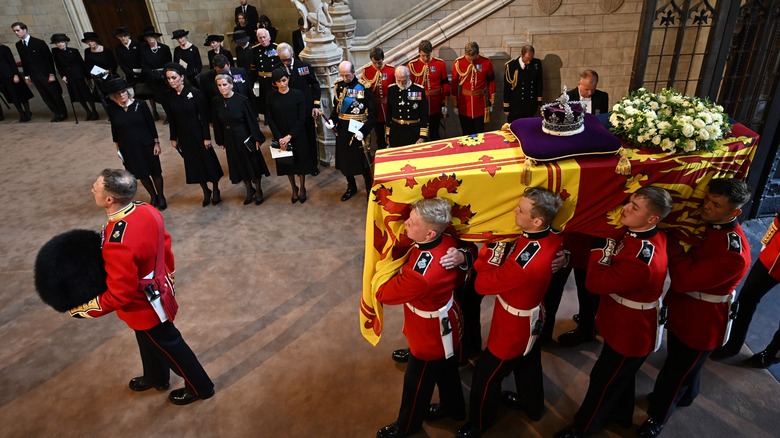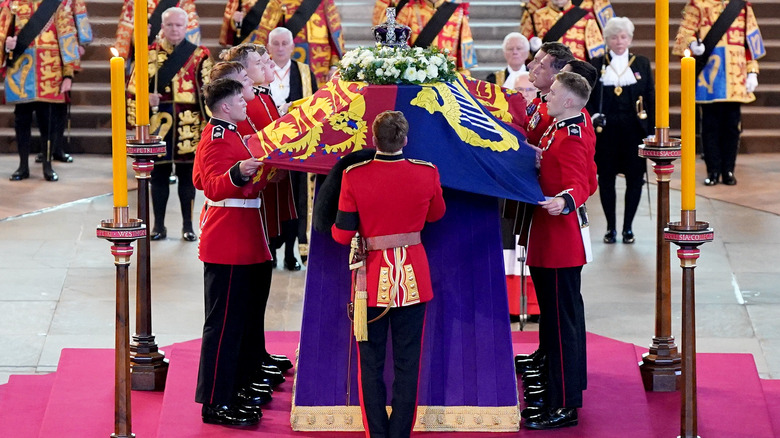The Truth About The Guards Chosen To Carry Queen Elizabeth's Casket Into Westminster Hall
In Western funerary tradition, it's not uncommon for the ceremony to include portions where the casket containing the body of the deceased will be carried by pallbearers. Anyone who has ever had that job will tell you confidently that it is extraordinarily difficult; putting aside the emotional difficulty of the situation, there's also the fact that the pallbearers' quarry can weigh several hundred pounds, making the job physically demanding as well.
Fortunately, the men who have been tasked with carrying the late Queen Elizabeth's casket from place to place –- and who will do so again when her funeral takes place on September 19 -– are members of the British armed forces. As military men, they're fit and adept at physically-demanding tasks. Different sources give differing accounts about who those men are and what their duties will be, but regardless of the specifics, for these British soldiers, this honor may be the high point of their military careers.
The Grenadier Guards
On September 14, 2022, as CBS News reported, the coffin containing the body of the late Queen Elizabeth II was brought to Westminster Hall in London, where it is expected to remain until her funeral on September 19. Mourners will have the opportunity, over these next few days, to pay their respects to the departed monarch, although as the New York Post reports, they should expect to stand in line for upwards of 30 or more hours.
The eight men who shouldered the casket were drawn from the ranks of the Grenadier Guards, according to ABC News, and men from that unit, as well as from the units known as the Blues and Royals (per I News), will also guard her as she lies in state.
The Grenadier Guards are, according to the British Ministry of Defence, "one of the oldest and most iconic regiments in the British Army ... renowned for their determination, loyalty and grit." The unit has two sets of duties: as infantry on the ground during combat, and ceremonially guarding the monarch back at home. The unit's origins go back to 1656 when King Charles II created his Royal Regiment of Guards. Following the Battle of Waterloo in 1815 it was given the name "The First or Grenadier Regiment of Footguards." Since then, the military unit has battled in every "major" war the U.K. has been part of, per The Ministry of Defence.

